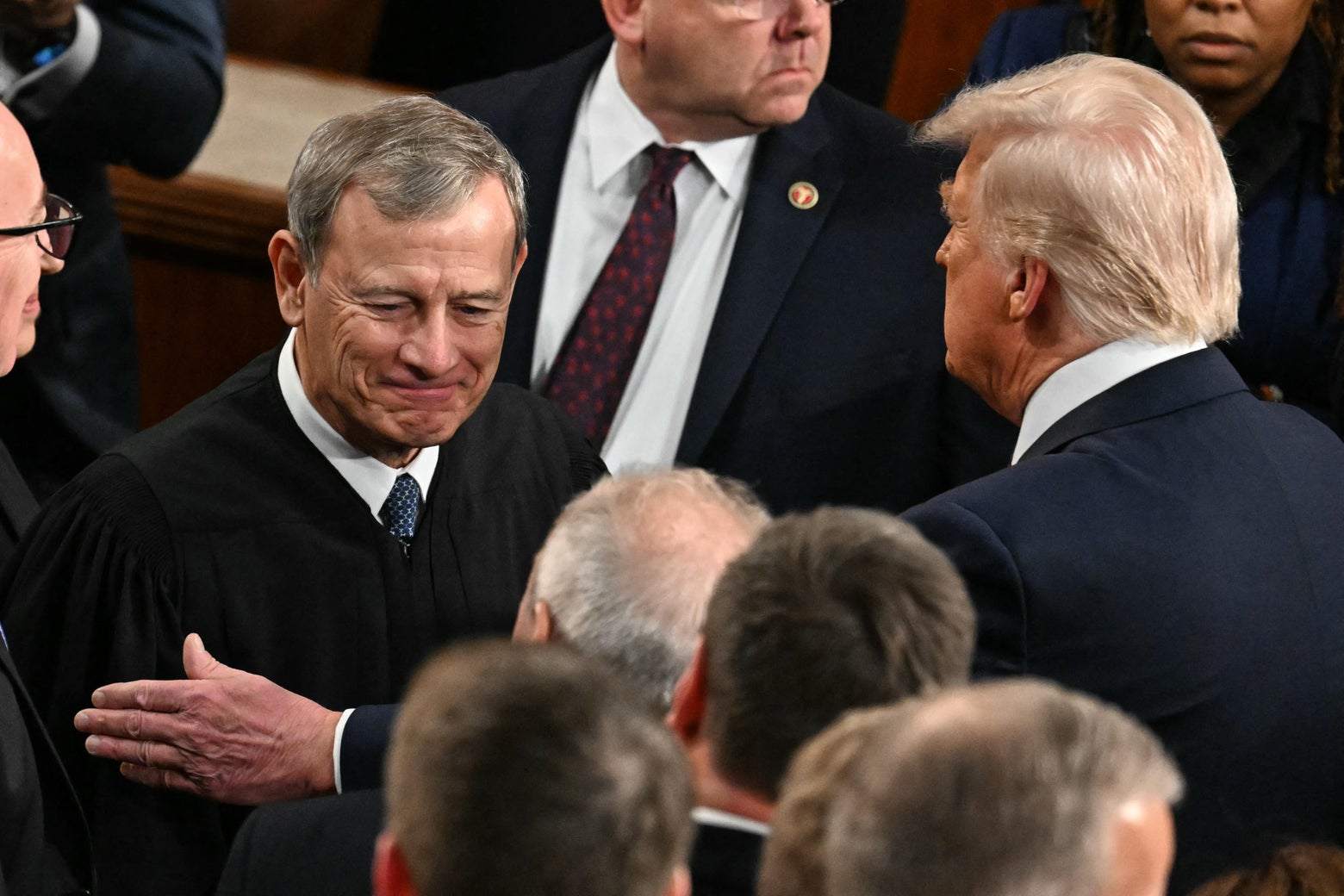Summary
First, it acted with startling speed—so quickly, in fact, that it published the order before Alito could finish writing his dissent; he was forced to note only that a “statement” would “follow.”
Relatedly, awkward phrasing in court’s order may imply that Alito—who first received the plaintiffs’ request—failed to refer it to the full court, as is custom, compelling the other justices to rip the case away from him.
Second, it is plain as day that the Supreme Court simply did not trust the Trump administration’s claims that it would not deport migrants over the weekend without due process.
Finally, and perhaps most obviously, it’s critical that only Thomas and Alito noted their dissents. When the court takes emergency action, justices don’t have to note their votes, but they usually do; we can probably assume that this order was 7–2. That would mean that Chief Justice John Roberts—along Justices Neil Gorsuch, Brett Kavanaugh, and Amy Coney Barrett—joined this rebuke to the Trump administration.



I get what you’re saying, but one of our foundational principles (at least until now) was that people are presumed innocent until proven guilty in a court of law. So this notion that “we can’t know if a crime has been committed until a jury says so” isn’t a bug, it’s a feature. Yes, it makes things complicated, but it is designed to minimize the chance that innocent people can be deprived of their liberties just because the government doesn’t like them.
I’d counter part of that is that US law is based on common law, which is defined by prior court cases not just law - vs civil law which is only based on law.
There are issues with both of course, but, its common law that requires lawyers and knowledge of every court case and knowing what a judge in the 1800s thought a word means to win or lose a case.
I think the common law system of justice is deeply flawed and leads to this legalese where everything is vague and malleable with no certainty